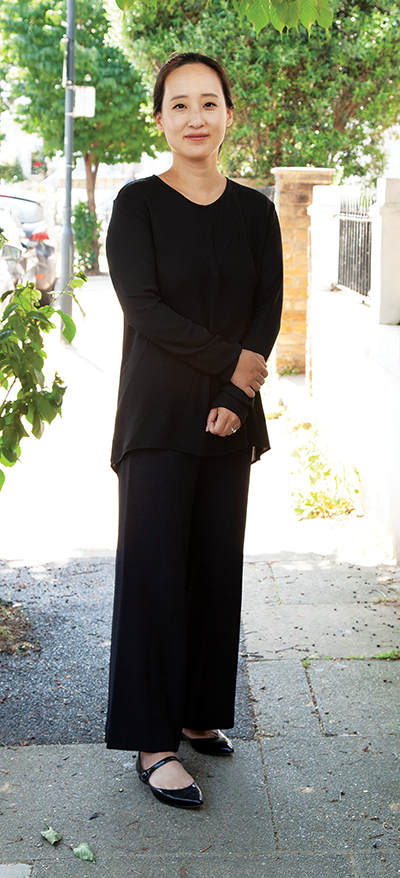Last year debut author Catherine Cho stunned readers with Inferno: A Memoir of Motherhood and Madness (Henry Holt, 2020), which intimately chronicled Cho’s harrowing postpartum psychosis. Though it was Cho’s first book, she is no stranger to publishing: A literary agent since 2013, she has worked with writers including David Mitchell and Tracy Chevalier during stints at Folio Literary Management, Curtis Brown, and most recently Madeleine Milburn Literary Agency. Earlier this year Cho founded Paper Literary, a U.K.-based agency with a focus on fiction that is currently open for submissions via e-mail at submissions@paperliterary.com. Recently she explained how her writing and agenting complement each other and shared the moment she savors most in her work.

Catherine Cho (Credit: Alastair Levy)
How did you become an agent?
I went to law school, but in college I’d been an English major who loved books. I thought maybe I’d be an editor. Then somebody said, “You should be an agent; you’d use your law degree.” I’d never heard of agenting, but it sounded amazing. I cold e-mailed agents and heard back from Jeff Kleinman at Folio, a former lawyer, who hired me. I moved to New York City, living on people’s couches. Then I met my now-husband, an American living in London, and moved there to be with him, cold e-mailing all over again. Luckily in publishing everyone’s very nice—I had a lot of coffees. I saw a job at Curtis Brown, working under Jonny Geller. I became his assistant, then an associate.
Why go solo?
Lockdown made me think about what I needed for a business—do you need a physical space?—and to be a great agent. It’s a multifaceted role. Writing a book is personal, vulnerable, and my job is to protect the writer and work while thinking strategically. I especially love the editorial part. A client recently said, “I opened the document, and my heart sank—there’s a hundred comments.” But I never want to be complacent. Some agents send a project to a few editors and that’s it; they don’t actually champion the writer. I want to believe in what I sell and take on books because I love them.
You launched a new business months after having a second child—how did you manage to pull that off?
Well, I’m not writing currently; there’s only so much I can do at once. And, yes, there are days when I feel like I’m not doing something well enough. But I find it energizing to be creating something, even if the launch phase is a tussle. Some clients came with me, though many nonfiction clients stayed behind, since I’m focusing on fiction. I’m trying to keep my list under ten writers. I just made my first deal this week.
Congratulations! Why the emphasis on fiction?
I love the editorial process, and with nonfiction the writer is often working from a proposal, or if it’s a memoir it’s highly personal, so there’s only so much you can change. But I love stories and helping them become stronger. I’m looking for work that transcends borders. And the shared theme in the books I love is identity. Inferno, at its heart, was about that. If you’ve lost yourself, as I did in psychosis, and have to build yourself again, you have to think about what it was that you were.
How does being an agent influence your writing, and vice versa?
Agenting makes you brutal with yourself. If I dream up a book idea, I find myself thinking, How would you pitch that? Is that interesting? It can rob you of the creative space to explore. I read that Bill Clegg, another agent-writer, goes away for the weekend to write, to carve out time. He says his first love is agenting. I agree, writing is second for me. But having written a book makes me more empathetic. I know how it feels to send a query and wait. My agent, Sophie Lambert, is one of my mentors. We hammered out my book over three drafts. And it was brutal when she sent it out, because I knew exactly what that meant: waiting and stressing.
What would you tell a writer daunted by the process of finding an agent?
Don’t get so caught up in the publishing part that you forget your work. Also, if one person doesn’t love it, it doesn’t mean no one will. If it’s a compelling story, it will find its home. And when it does, it’s incredible. The best part of my job is calling someone to say, “We sold it.”
Katie Arnold-Ratliff is a magazine editor and the author of the novel Bright Before Us (Tin House, 2011).








